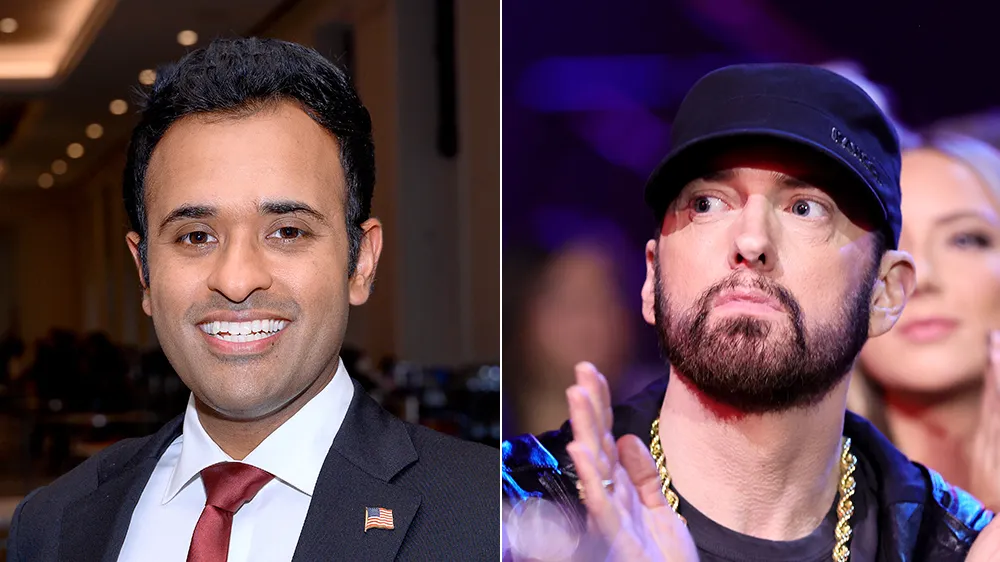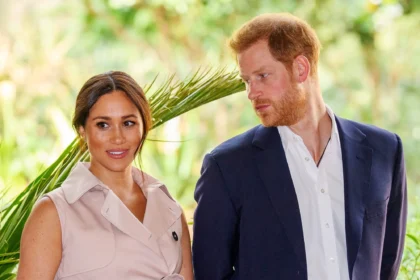Vivek Ramaswamy, a Republican presidential candidate, has decided to relinquish his plan of spitting Eminem’s rap verses after receiving a cease-and-desist order. This unexpected development has stirred discussions about artistic freedom, political differences, and the evolving nature of artists’ perspectives.
During an appearance on MSNBC, Ramaswamy confirmed his intention to comply with Eminem’s wishes, stating, “I will respect his wishes.” However, he couldn’t resist a playful nod to Eminem’s hit song “The Real Slim Shady,” quipping, “But I’ll just say, will the real Slim Shady please stand up?”
Expanding on his standpoint, Ramaswamy noted how Eminem’s trajectory has shifted over time, stating, “Eminem, during his ascent, was a figure who defied the establishment and voiced opinions that contradicted conventional norms.” This commentary followed a cease-and-desist order served to Ramaswamy by BMI, the music licensing company representing Eminem, due to his usage of one of the artist’s songs.
Ramaswamy elaborated further, saying, “While my political beliefs might diverge from his, people naturally evolve over time. I’m hopeful that Eminem will rediscover the rebellious spirit that fueled his success. I genuinely wish him success in that journey.”
Previously, Ramaswamy had expressed admiration for Eminem’s work. However, his tone shifted earlier this week when he retweeted a Daily Mail article detailing the cease-and-desist order. The incident occurred during Ramaswamy’s performance at the Iowa State Fair in Des Moines, where he delivered a rendition of lines from Eminem’s 2012 hit “Lose Yourself.” This followed a request by Gov. Kim Reynolds for his favorite walkout song. The New York Post reported his playful caption: “Will The REAL Slim Shady Please Stand Up? He didn’t just say what I think he did, did he?” accompanied by a laughing emoji.
The aftermath of Ramaswamy’s karaoke-style performance of Eminem’s track promptly caught fire online, generating a spectrum of reactions from diverse quarters. The incident has sparked conversations about the intersection of politics and art, artistic expression, and the dynamic nature of artists’ beliefs.
As the political landscape evolves and artists continue to make their voices heard, the episode serves as a reminder of the delicate balance between creative expression and respect for intellectual property.




